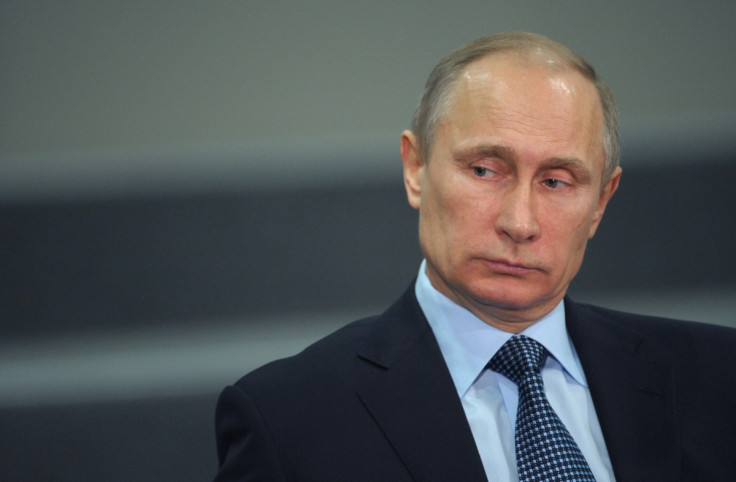Putin, Hitler and Stalin: Least Deserving Nobel Peace Prize Nominations

Russian president Vladimir Putin has been nominated for the 2014 Nobel Peace Prize, one of a record 278 candidates for this year's award.
However, the Nobel committee's agenda is likely to include the recent conflict in Ukraine. Last month, Russia seized control of Ukraine's Crimea region after President Viktor Yanukovich was ousted, prompting the most serious confrontation between the West and Moscow since the Cold War.
Geir Lundestad, the Norwegian Nobel Institute's director, said: "Part of the purpose of the committee's first meeting is to take into account recent events, and committee members try to anticipate what could be the potential developments in political hotspots."
Edward Snowden, the former US National Security Agency contractor responsible for the leak of classified material exposing internet surveillance systems, has also been nominated for the 2014 peace prize. Malala Yousafzai, the Pakistani teenager and women's educational rights activist who was shot in the head by the Taliban, is believed to be on the list of candidates although this has yet to be confirmed.
Nominees such as Yousafzai, as well as previous candidates such as Mahatma Gandhi and Eleanor Roosevelt, brook little argument. However the prize has seen several contentious nominations since its launch in 1901.
IBTimes UK now examines the most controversial nominees and winners.

Adolf Hitler
The former Führer of Germany was nominated for the 1939 Peace Prize by E.G.C Brandt, a member of the Swedish parliament. However Brandt nominated Hitler as a hoax to protest the nomination of Neville Chamberlain, the British prime minister between 1937 and 1939.
Brandt was railing against Chamberlain's foreign policy, which included signed the Munich Pact in 1938. Hitler's nomination was withdrawn in February 1939.
Josef Stalin
The former leader of the Soviet Union was nominated for the Peace Prize in 1948 by Wladislav Rieger, a Prague University professor. As well as being the mind behind the campaign of political repression known as the Great Terror, Stalin ordered the execution of 25,700 Polish POWs in March 1940, known as the Katyn Massacre. Stalin personally told a Polish general they had "lost track" of the officers in Manchuria, yet Polish railroad workers found the mass grave after the 1941 Nazi invasion.
Henry Kissinger
Kissinger was one of the most influential architects of US foreign policy between 1969 and 1977. He pioneered the policy of 'detente' - easy relations - with the Soviet Union, and helped end the American involvement in the Vietnam War. Kissinger was nominated for the prize in 1977, but earlier that year it was revealed he was overseeing the killing of hundreds of thousands of people in an illegal secret bombing campaign against Cambodia.
Cordell Hull
Franklin Roosevelt's Secretary of State rejected reports of the Holocaust and sent Jewish refugees back to Germany. In 1939, Hull advised President Roosevelt to reject a ship called the SS. St Louis, which was carrying 936 Jews seeking asylum.
Hull received the Nobel Peace Prize in 1945 for his role in establishing the United Nations.
Fidel Castro
Under the rule of the Cuban communist revolutionary, socialist reforms introducing central economic planning and education were accompanied by state control of the press and the suppression of internal dissent. Human rights in the country are under the scrutiny of Human Rights Watch, which accuses the government of systematic abuses, including torture, unfair trials and abitrary imprisonment. Despite the the elimination of the press and the terrorisation of dissenters, Castro was nominated for the prize in 2001 by a Norwegian parliamentarian for his "efforts to help developing nations".
© Copyright IBTimes 2025. All rights reserved.






















